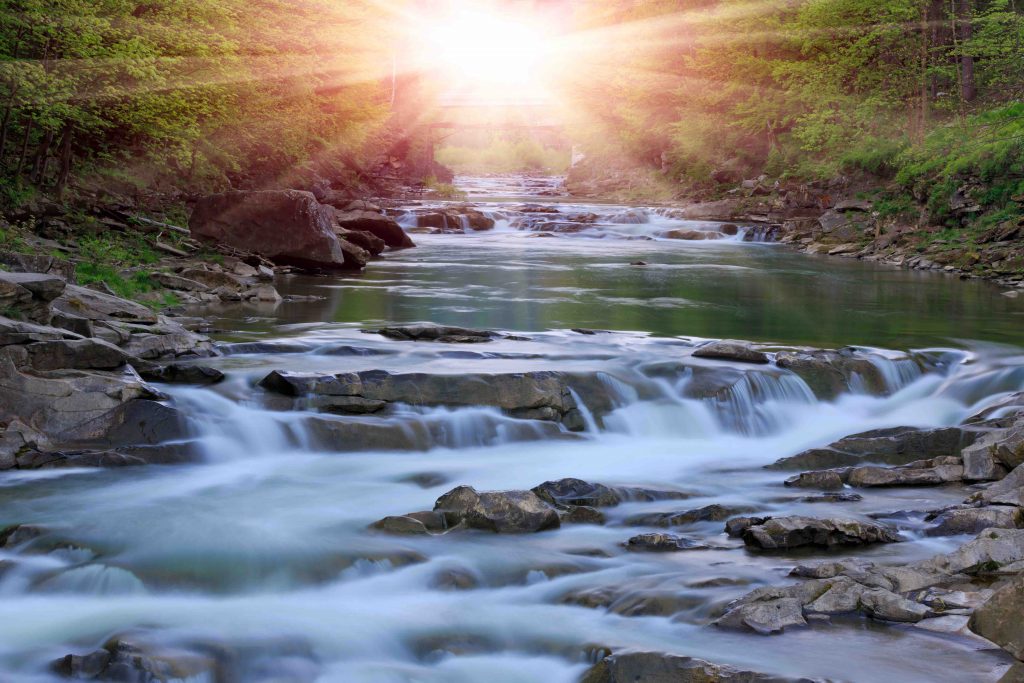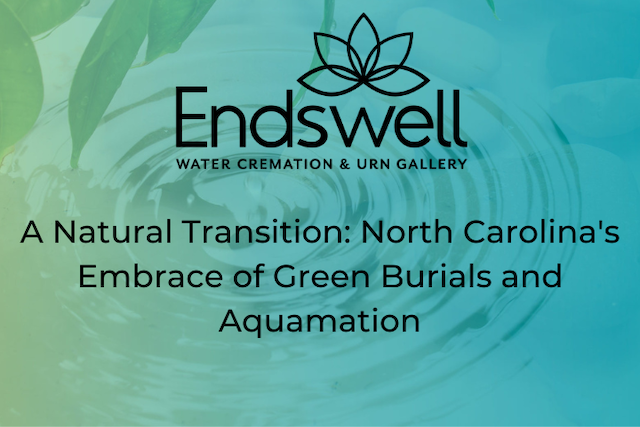North Carolina Green Burial and Aquamation In an era where environmental conservation is paramount, people…
Aquamation Versus Cremation
Decision-Making During Pre-Planning

Making funeral arrangements in advance and pre-planning for aquamation and cremation services can save time and money and help reduce the stress involved in end-of-life decisions.
Advanced planning gives families the opportunity to discuss traditional burial, funeral services, cremation, and environmentally friendly alternatives like green burial and aquamation. Planning ahead also offers the opportunity to discuss memorial services and how to honor and pay tribute to loved ones.
If you’re interested in aquamation, then you can learn more by contacting us at 919.907.9777.
Aquamation VS Cremation Process
When someone is considering aquamation, it’s important to talk about it in the context of cremation. People are familiar with flame-based cremation, but water cremation or aqua cremation is becoming a more popular choice for end-of-life care. Both processes accomplish the same goal of removing the soft tissue that would otherwise decompose in order to leave behind bone remains that can be returned to the family. Cremation uses extremely high temperatures, close to 1800 degrees, to burn off the soft tissue. Endswell Aquamation uses a process called alkaline hydrolysis to circulate a gentle alkaline solution around the body for approximately 4 hours. Aquamation, also known as flameless cremation or bio cremation, is often seen as a gentler and simpler alternative to flame cremation.
In this process, the body is placed in a clean vessel with water and potassium hydroxide. The mixture is heated, pressurized, and gently circulated to speed up the natural decomposition of the body. After about four hours, the body is reduced to bones and the essential building blocks: sugars, salts, and amino acids. This process is very similar to the natural decomposition that occurs with green burial and human composting.
Aquamation is More Eco-friendly Than Cremation
Aquamation is a better eco-friendly choice. The environmental benefits of aquamation are significant. Aquamation doesn’t produce toxic gases or greenhouse gases. It also uses a fraction of the energy as flame cremation and avoids the use of fossil fuels.
Aquamation expends 10% of the energy used in cremation, and it has a 75% lower carbon footprint than cremation.
For families concerned about their environmental impact and their carbon footprint, Endswell Aquamation services are an important consideration for end-of-life planning.
Aquamation VS Cremation Cost: Which is Better?
According to the National Funeral Directors Association (NFDA), the average funeral cost in the U.S. is $8,000. Local cremations in North Carolina can cost as much as $4,000 for a simple direct cremation. There are more affordable cremation options, but there are often additional costs and hidden fees.
At Endswell Aquamation, we charge $3500 for the aquamation service. This includes transportation, aquamation, death certificates, and the return of remains in an eco-friendly bamboo urn.
The best choice is the one that’s right for you and your family. You may want to consider your traditions, your values, your financial situation, as well as other practical matters. Often, people choose aquamation because they see this decision as their last act on the planet. Aquamation is a humane, eco-friendly way to return to the earth.
Do you have questions about the service? Contact us. Our staff is here to answer any questions you might have about advanced planning, end-of-life planning, and the aquamation services at Endswell Water Cremation.
Aquamation Produces More Ash Than Cremation
Aquamation and cremation both produce bone remains. Many people think that cremated remains, often called cremains, are a fine ash or powder. However, when the bones are removed from the cremation chamber, they are often still intact and recognizable as bones. Crematoriums use cremulators to pulverize the bones, as required by law. Similarly, aquamation facilities are required to reduce the bones into a fine powder before returning them to the family.
The ashes from aquamation look more pristine and uniform than cremains. The cremation process chars the bones. Cremains are often course and dark, from the intense heat in the cremation chamber.
Aquamation produces 20% to 30% more ashes than cremation. Because the ashes are not subjected to the high heat of a crematorium, they retain a lighter color. With more ashes, you may want to consider a beautiful one-of-a-kind aquamation urn.
Is Aquamation Legal In North Carolina?
Yes, Aquamation has been legal in the state of North Carolina since 2018.
It is also legal in Alabama, California, Colorado, Connecticut, Florida, Georgia, Idaho, Illinois, Kansas, Maine, Maryland, Minnesota, Missouri, Nevada, North Carolina, Oregon, Tennessee, Utah, Vermont, Washington, and Wyoming. Other states are currently working to legalize aquamation.
Are You Planning an Aquamation?
Contact us at 919.907.9777. We can answer any questions you have about the aquamation process as well as Endswell Aquamation services.
